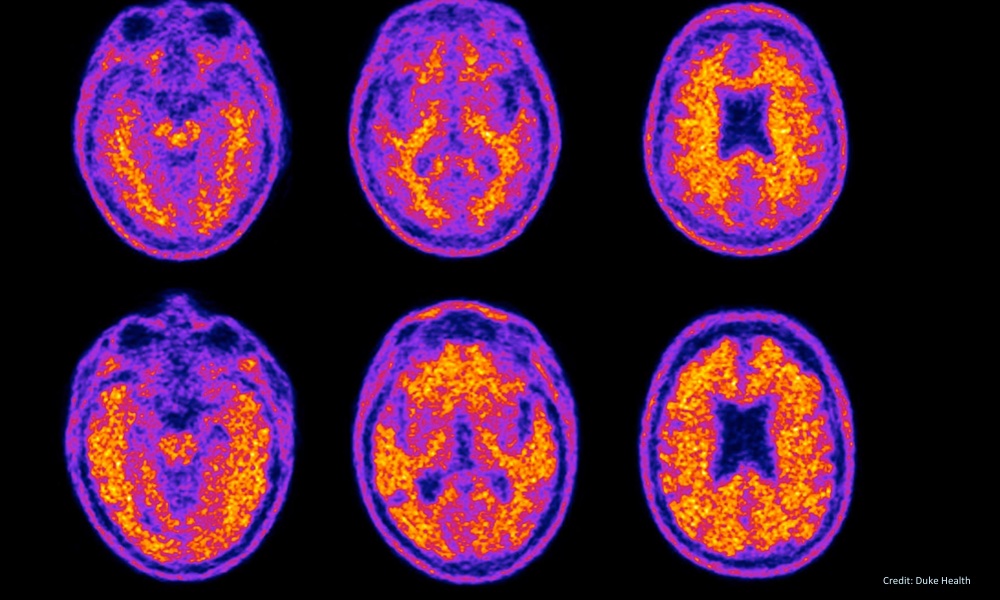Dementia is a general term used for the loss of thinking abilities such as memory, language, and executive and problem-solving skills that are severe enough to interfere with daily life. Alzheimer’s Disease (AD) is the most common form of dementia. It’s also a leading cause of death in our country.
Only a decade ago, the medical community focused on physical inactivity, followed by depression and smoking as leading causes of AD. But recent research is now considering a different factor: obesity.
There is growing scientific evidence of a correlation between neurodegeneration, in which the cells in the central nervous system stop working or die, in obese people and that in Alzheimer’s Disease, most recently in a new study from The Neuro, the Montreal Neurological Institute-Hospital of McGill University.
To establish the Alzheimer’s-obesity connection, researchers used a sample of 1,300 participants and looked at the patterns of grey matter atrophy in both conditions. They did this by comparing the grey matter in AD patients with healthy individuals, and obese folks with non-obese participants. The researchers then created maps that depicted the brain’s deterioration in each group.By losing excess pounds in middle age it may be possible to slow down the destructive neurological changes, and in the process, lower the risk for Alzheimer’s.
When analyzing the grey matter maps, researchers found the same kind of neurodegeneration in the brains of obese individuals as in those with Alzheimer’s, particularly when it came to cortical thinning. While cortical thinning is a normal part of aging, accelerated thinning may be an indicator of AD.
Cortical thinning creates disturbances in attention, as well as visual memory for social stimuli. It also disrupts the arousal process.
“Our study strengthens previous literature pointing to obesity as a significant factor in AD by showing that cortical thinning might be one of the potential risk mechanisms,” Filip Morys, a researcher at The Neuro and the study’s first author, said in a press statement. “Our results highlight the importance of decreasing weight in obese and overweight individuals in mid-life, to decrease the subsequent risk of neurodegeneration and dementia.”
The good news is that this study suggests that by losing excess pounds in middle age it may be possible to slow down the destructive neurological changes, and in the process, lower the risk for Alzheimer’s.
According to the Centers for Disease Control, almost 40 percent of U.S. adults are dealing with obesity. Folks with the condition are also more likely to develop other serious health problems in addition to Alzheimer’s, including heart disease, type 2 diabetes, certain cancers, digestive problems, sleep apnea, osteoarthritis, as well as severe COVID symptoms.
The American Heart Association offers these tips for losing weight and keeping it off:
- Set realistic goals. Short term goals such as, “I will make lifestyle changes to help me reduce my weight,” are more likely to meet with success.
- Understand how much and why you eat. Use a food diary or tracking app to help you understand what, how much and when you’re eating.
- Manage portion sizes. Practice keeping portions a reasonable size. One way is to stay clear of all-you-can-eat buffets.
- Learn to make smart substitutions. Instead of processed or sweet snacks, reach for fruit, whole grains and vegetables to keep you feeling fuller, longer.
- Introduce physical activity. Begin slowly and aim for at least 150 minutes of moderate activity a week. Sit less and move with more intensity when you gain strength.
Most importantly, before beginning any weight loss program, speak with your healthcare provider who may offer a program for your particular needs.
The study is published in Journal of Alzheimer's Disease.





